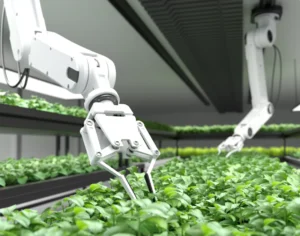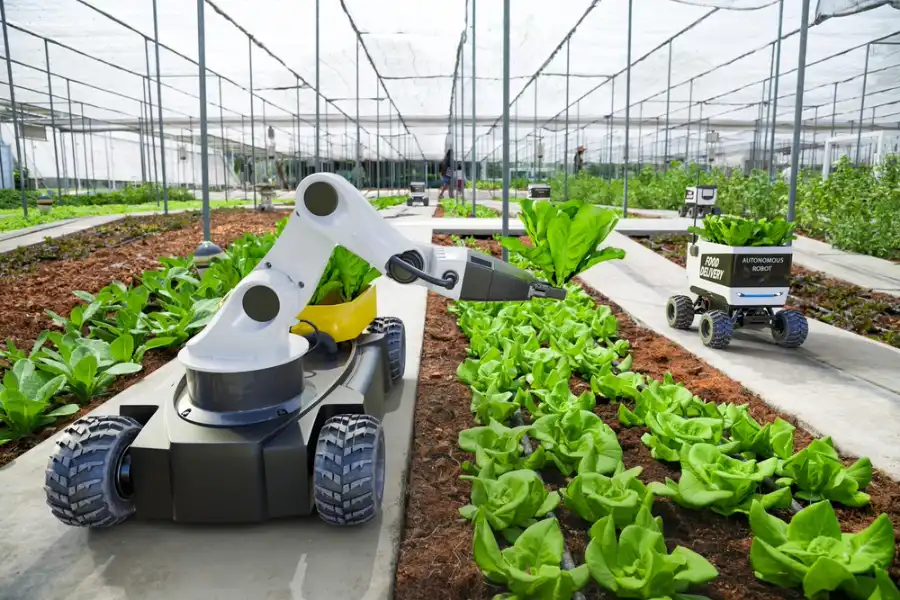In a bold shift toward modern agricultural practices, Nigerian farmers across various regions are increasingly adopting digital tools to tackle persistent food waste and increase crop yields. With agriculture employing a significant portion of Nigeria’s workforce and feeding millions, the integration of technology is proving vital in making farming more efficient, profitable, and sustainable.
From mobile apps that provide real-time weather forecasts and pest alerts to platforms offering direct market access and precision farming, the use of digital solutions is revolutionizing how smallholder farmers operate.
Fighting Food Waste with Data and Logistics
Food waste has long plagued Nigeria’s agricultural sector, with an estimated 40% of farm produce lost after harvest due to poor storage, inefficient transport systems, and market delays. However, digital tools are helping to reduce this figure significantly.
Startups and agri-tech platforms like Crop2Cash, Hello Tractor, and Farmcrowdy are empowering farmers with real-time information, improved supply chain coordination, and smarter storage techniques. By providing access to cold storage services and helping organize more efficient transportation, these innovations are limiting spoilage and maximizing income for farmers.
Farmers now use mobile phones to schedule harvest pick-ups, coordinate with logistics providers, and receive market price updates—thus reducing the time food spends in transit and lowering the risk of spoilage.

Increasing Productivity Through Smart Solutions
Beyond post-harvest losses, digital tools are also enhancing productivity right from the farm. Through apps that analyze soil health, track fertilizer application, and monitor irrigation needs, farmers are making more informed decisions. These tools reduce waste of resources and ensure that crops receive exactly what they need to thrive.
Farmers in states like Kaduna, Ogun, and Benue now report higher yields and better-quality produce thanks to digital advisory services that offer guidance on best practices, pest management, and crop rotation schedules. Some platforms even provide AI-powered diagnostics by analyzing photos of crop diseases sent via smartphone.
Financial Access and Digital Inclusion
One of the key challenges farmers face is limited access to credit and insurance. To address this, several agri-fintech platforms are offering digital financial services tailored for the agriculture sector. These services allow farmers to secure low-interest loans, subscribe to affordable crop insurance, and build credit scores using mobile transaction histories.
Digital wallets and mobile money services have also improved farmers’ ability to save and transact securely without relying on traditional banking infrastructure, which remains sparse in many rural areas.
Training and Adoption Challenges Remain
Despite the clear benefits, digital adoption in agriculture faces some barriers. Limited internet connectivity, low digital literacy, and lack of smartphone access remain significant hurdles, especially in remote communities.
To overcome these challenges, non-governmental organizations, government agencies, and tech companies have launched training programs aimed at teaching farmers how to use these tools effectively. Community-based training hubs, demo farms, and radio sensitization campaigns are helping bridge the knowledge gap.
Youth and Women at the Forefront
Interestingly, young Nigerians and women farmers are emerging as the fastest adopters of digital agriculture. Many are leveraging online platforms to learn, share experiences, and even build agri-based businesses. Some have transitioned into roles as digital extension agents or agri-tech entrepreneurs, bringing solutions closer to grassroots farmers.
Women-led farming groups in areas like Enugu and Kwara are also using digital platforms to pool resources, organize sales, and access information that enhances their productivity.
A Promising Outlook for Nigeria’s Food Future
As Nigeria faces increasing food insecurity, climate stress, and population growth, the adoption of digital agriculture is poised to play a critical role in building resilience and securing the country’s food systems. By improving farm efficiency and reducing waste, digital tools are helping Nigeria take concrete steps toward a more sustainable and technologically empowered agriculture sector.
With continued investment in rural connectivity, digital literacy, and scalable innovations, experts believe that smart farming could reshape Nigeria’s agricultural landscape and lift millions out of poverty.






